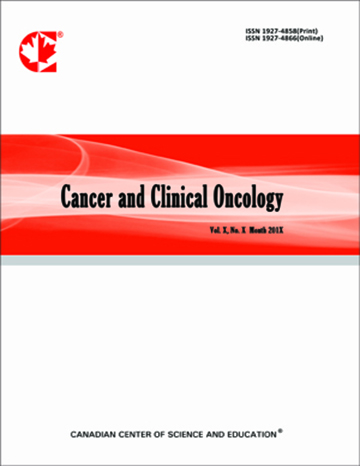Increased Chromosome Fragility in Gastric Cancer Patients
- Petros Kouridakis
- Evangelos Digkas
- Georgios Kouklakis
- Georgios Minopoulos
- Alexandros Polychronidis
- Nikolaos Lyratzopoulos
- Theodoros Lialiaris
Abstract
Gastric cancer is one of the most common lethal malignancy in global and survival mainly depends on prognosis. Sister Chromatid Exchanges (SCEs) assay is a very sensitive method of detecting chromosome fragility. The aim of our study was to determine the chromosomal fragility of gastric cancer patients in vitro. Samples from 32 gastric cancer patients and 12 healthy donors were controlled. Cancer patients lymphocytes’ genome is highly fragile as treatment of the cell cultures with MMC caused a statistically significant increase of the mean SCEs frequency (p<0.01). Also, so simultaneous as MMC-induced SCEs frequency of gastric cancer patients was statistically significant (p<0.01) higher compared to the healthy donors. PRI and MI of treated with MMC and untreated lymphocytes of gastric cancer patients were significantly (p<0.01) lower than that of healthy donors. These results suggest that peripheral lymphocyte chromosomes of cancer patients are highly fragile and alkyliotic agents increase their fragility.
- Full Text:
 PDF
PDF
- DOI:10.5539/cco.v1n1p148
Journal Metrics
Google-based Impact Factor (2018): 3.94
h-index (August 2018): 8
i10-index (August 2018): 6
h5-index (August 2018): N/A
h5-median(August 2018): N/A
(The data was calculated based on Google Scholar Citations. Click Here to Learn More. )
Index
Contact
- Lexie GreyEditorial Assistant
- cco@ccsenet.org
